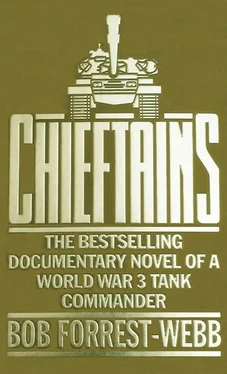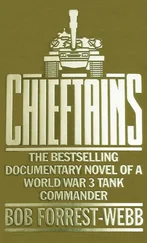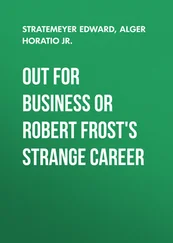‘Sir… Captain Fellows, sir.’ The sergeant was beckoning from beside the radio operator. Fellows hurried across and picked up a spare headset. There were a lot of metallic clicking sounds, atmospherics, cracklings.
The strength of the transmission was fluctuating, but they could make out the distant operator’s voice, each word ennunciated sharply and positively. ‘Magpie this is Wizard. Apex Echo. Trophy Bacon Sunset Juliet. Repeat: Apex Echo. Trophy Bacon Sunset Juliet. Out.’
A ten second transmission, thought Fellows. It would have been damned easy for a careless radio operator to miss. The RTO had switched off the unit’s set the moment the message had ended; it would remain silent for another six hours.
It pleased Fellows to think that his German CO would sweat a bit now, hoping the message that would initiate his pet project had been received. Only future events would confirm it.
Hinton was standing nearby waiting, so Fellows translated the code from memory. ‘The Russians have advanced a long way. They’re at Wolfsburg.’ Apex was the head of the Soviet thrust, Crown the city of Wolfsburg. ‘Wizard has given us one K west of Hehlingen as the approximate location of the Soviet Divisional HQ!
‘The Russians must have taken the whole of the Werder,’ commented Hinton, sourly. ‘The bastards haven’t wasted time!
‘It’s only just begun,’ Fellows reminded him curtly. ‘And it’s obvious they’re already malting mistakes.’
‘Mistakes?’ Hinton looked puzzled. To accuse the enemy of errors without knowing their total battle plan was naive.
‘Look at the map. If their 12th Guards Army are now in Wolfsburg, then it’s certainly a mistake to put a main HQ so close to the front… it’s too vulnerable, and not even normal planning tactics. It’s more the position far a Forward Command HQ.’ Fellows paused for a moment to allow Hinton to digest this observation. ‘If we assume their attack has otherwise been in character, then the 12th Guards Army will have advanced on a-narrow front; at most only five or six kilometers in breadth. They will have attacked in echelon, backed by strong reserves to exploit mints of success. The forward command would be up-front and the main headquarters somewhere to the rear of their second echelon. But this isn’t the case, Hinton… and why?’
Hinton was resenting the manner in which Fellows had arrogantly turned the briefing into a staff college lecture on tactics, but he kept his feelings hidden. ‘They could be over-extended.’
‘Yes, Hinton, perhaps. I believe their thrust has been a little too fast… deeper and quicker than they anticipated. Normally their divisional depth would not exceed thirty-five Ks… but if it were much greater… perhaps as much as fifty, and with the second echelon lagging or depleted by an air-strike… then the main headquarters might have been moved up. Alternatively…’ Fellows hesitated for effect. ‘They have actually lost their Forward Command HQ; that being the case, Hinton, if I can take out the main HQ, then the 12th Guards Army won’t know its eyeball from its backside for the next twenty-four hours.’
‘Yes, sir.’ Hinton was pleased he was only serving temporarily with Captain Fellows.
‘Your chaps ready to deal with the gentlemen outside?’
‘Quite ready, sir.’
‘Then I think you should make a move.’
Lance Corporal Mark Ellen of the 22nd SAS lay with his face only an inch above the ground. He was twenty-four years old, the son of a Ruardean lorry driver. The smell of rotting beech leaves, damp with night dew, usually reminded him of time spent poaching in the Forest of Dean, in his schooldays; tonight he was too preoccupied for memories. The air was chill after the muggy warmth of the bunker, condensing to glistening beads on the metal hull of the Russian SPG ahead of him. He was watching one of its crew leaning against the sharp bow of the tank. The man was wearing his corrugated leather helmet and had the collar of his overalls buttoned tight to his neck for warmth.
Ellen had never yet killed, but all of his SAS training led him towards this end; he had no qualms about the task. In fact he was waiting impatiently for the opportunity.
Eight years previously, he had left his Ross school with two low grade Certificates of Education and no other qualifications. He had not been particularly interested in sport, nor shown any special aptitude for a trade. There was little employment in the Ross area at that time, and the general recession in industry had made matters far worse. The first summer after leaving school, he worked as a builder’s labourer; he bought a small motorcycle with the money he earned. He sold the machine during the winter, when he was laid off. It had not occurred to him to join the army until he saw the recruiting posters one Saturday afternoon after a visit to the Hereford Football Association ground at Ledbury.
He signed up for two reasons, boredom and bloody-mindedness; his father, with memories of National Service and wasted hours, had advised him against it.
Ellen signed for nine years with the Gloucesters, did two with the regiment, then completed a parachute training course and in euphoric bravado applied for transfer to the SAS. Selection was notoriously hard and he did not expect to be accepted, but for the next few days his status in the canteen bar was raised. He reported to the SAS barracks in a mood which wandered between apprehension and gloom; in a few days he would be forced to return to the regiment and admit his failure. He had already spent time inventing excuses.
To his amazement he found he enjoyed the tests. He was already very fit, and there was pleasure in being forced to push his body beyond the limits he had believed possible; a masochistic satisfaction in completing the tasks set for his fellow entrants and himself. Maybe he hadn’t always been able to beat the system, but he could certainly try to beat himself and others like him. Lying for hours half-submerged in icy water, or slogging twenty miles across the Brecon Beacons in deep snow, was easily tolerable if you were proving yourself tougher than the men weakening beside you. He passed all the tests and became a member of the unit. He had thought he was already an experienced soldier; the SAS proved him wrong, and began his training again. At the end of a further year he had trebled his number of parachute drops and learnt how to handle a dozen different weapons and explosives. He learnt how to canoe, and slide his way silently across a pebbled beach or through deep undergrowth. He could dive into a darkened room, and hit a man-sized target illuminated for only five seconds with four shots from a Browning pistol. But real action seemed to elude him. His unit was used several times during the next years; there were jobs for the SAS even in peacetime, but he was never chosen. It was the luck of the draw. He was promoted as his expertise increased. Four and a half years of dedicated training had led up to this particular moment. He was determined to enjoy it.
There were five Russian SPGs remaining in the woods. There had been eleven earlier in the day, but six had apparently moved on. Three SAS soldiers would deal with each vehicle. The orders were explicit; quick job and no noise. It was essential the Soviet radio operators should give no warnings.
The two men with Ellen were already in position, one crouched against the turret beside the gun and the second lying flat on his stomach above the driver’s hatch.
The Russian SPG commander Ellen was watching struck a match and lit a cigarette. In the fraction of a second that the match flared, momentarily blinding the man, Ellen was on his feet. As the man dragged on the tobacco, Ellen clamped his hand over cigarette and still-burning match and crushed them against the man’s mouth, at the same time driving the slim blade of his knife upwards beneath the ribs. The Russian struggled but Ellen pulled him off balance backwards, then cut his throat twice just above the stiff collar, using a quick sawing movement of the razor sharp blade. It was almost too easy; he had practiced it many times.
Читать дальше












